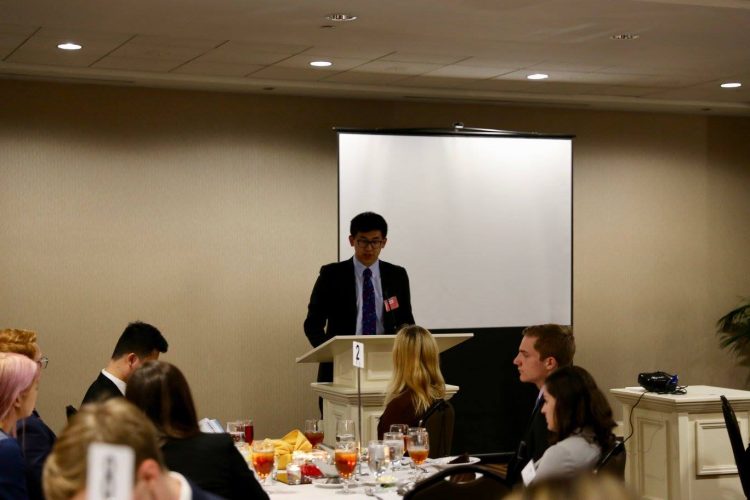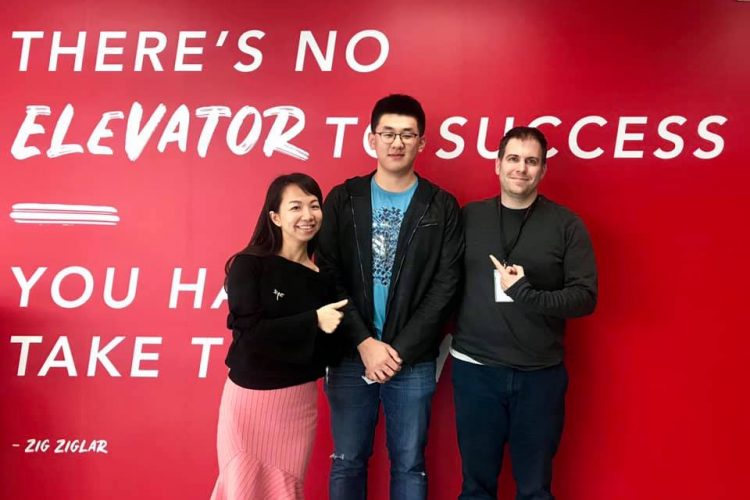For many TIS alumni, returning to the school to re-connect with former teachers is a common occurrence and two weeks ago, TIS had the pleasure of welcoming back William Tong. William attended TIS from Grade 4 to Grade 9 before leaving in 2011 to continue his education at Abingdon School, an all-boys boarding school near Oxford, England. While there, he enjoyed academic success across the GCSE and A-Level exams and was selected as School Prefect during his final year. We caught up with William to find out more about the journey that took him from the UK to the United States for university.
Tell us more about your decision to study in the United States.
As someone who had always wanted to go to the U.S., I knew that I was on the road less travelled compared to my Abingdon mates, the majority of whom stayed in the U.K. In the end, I opted for Duke University, a school famous for its all-star basketball team and top-ranked Pre-Law program. Now, three and a half years later, I have graduated with a dual Bachelor of Arts degree in Political Science and Philosophy and will be starting my Juris Doctor (Doctor of Jurisprudence) degree at Harvard Law School this fall.
What is it like living and studying in the U.S.?
For me, it really wasn’t that different from boarding school. The majority of problems that international students face in the U.S. involve language barriers and/or cultural barriers, neither of which bothered me greatly. Some things to note about the U.S. is that it is truly diverse in the sense that you will meet people from all over the world and from all socioeconomic strata. Not only that, political diversity is also at its extreme in the U.S., ranging from far-right supporters to far-left activists, so a basic understanding of the American political spectrum goes a long way in terms of understanding how to navigate such a complex spectrum during conversations with peers. The last thing that I will mention is that the U.S. is massive, meaning one’s lifestyle differs greatly between state to state and city to city. For instance, living in Boston, Massachusetts is going to be very different from living in Denver, Colorado or Jackson, Mississippi.
In what ways did TIS prepare you for post secondary life?
I spent a total of five years at TIS, from Grade 4 to Grade 9, skipping grade five in the process. I don’t know how much the curriculum has changed since my departure, but the best thing about my TIS experience was the variety of different classes and how much such variety exposed me to the world out there. For example, I recall doing a group presentation on the Peloponnesian War that fueled my interest in Ancient Greece and another group project that asked us to make up our own political system for a Robinson Crusoe island. Finally, the environment and people at TIS allowed me to understand and appreciate people with different backgrounds and different nationalities, which played a critical role in making my studies abroad, whether in the U.K. or the U.S., less burdensome.
What advice can you offer to Grade 11 and 12 students who are considering university in the United States?
Last summer, Mr d’Entremont and I held a small presentation for students who were interested in applying to U.S. colleges. I do not know whether I will continue to do this in the future, but I am definitely happy to offer some brief thoughts here. The U.S. college admission process is arduous and requires a lot more than just grades and a good SAT score. In fact, even great extracurriculars and leadership positions are by no means sufficient for admission into a top-ranked university. The U.S. application process, from my perspective, rewards not academic merit, but personality and uniqueness. Given that most applicants have roughly the same underlying achievements: stellar grades and amazing extracurriculars, the only avenue through which you can demonstrate your uniqueness and your personality is via your personal statements. I will sign off by offering you this advice: it is very important for you to know what you want and what you want to become, but above all, you have to know how to get there.

William speaking at a conference on US-China relations at Duke University in 2017.

William re-connected with Secondary Music Teacher Iris Chu and Academic Counsellor Dan d’Entremont during his visit to TIS this month.